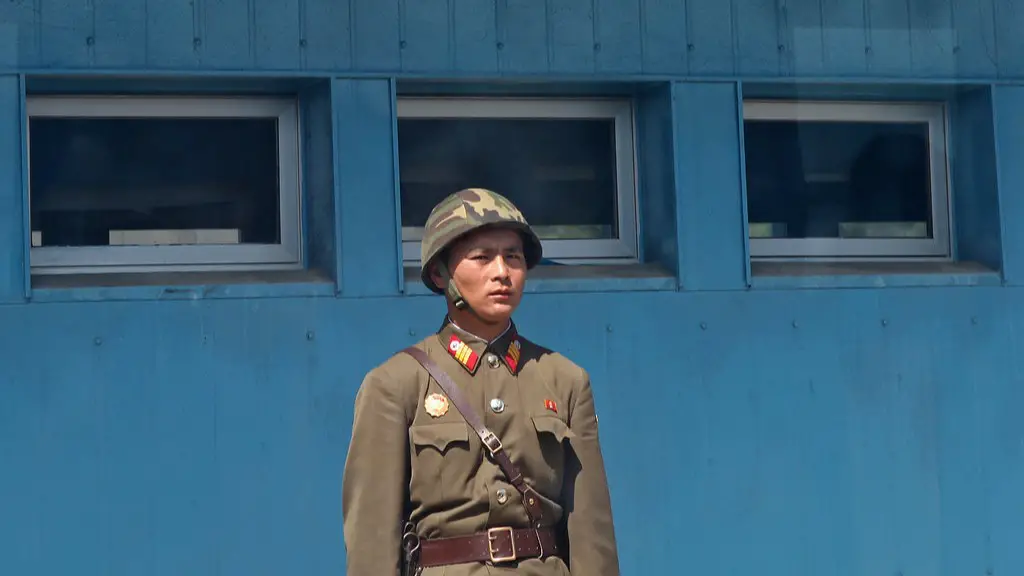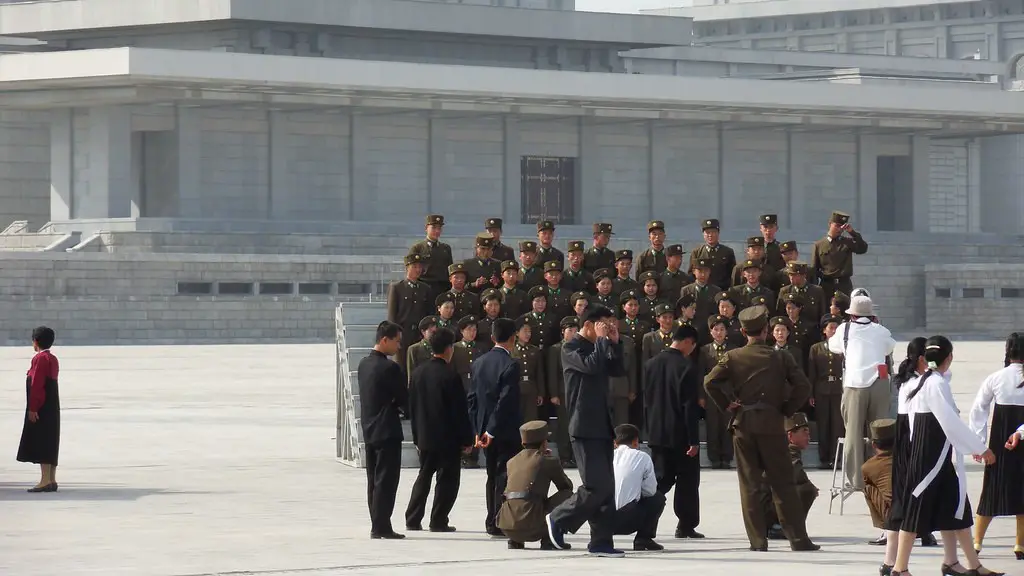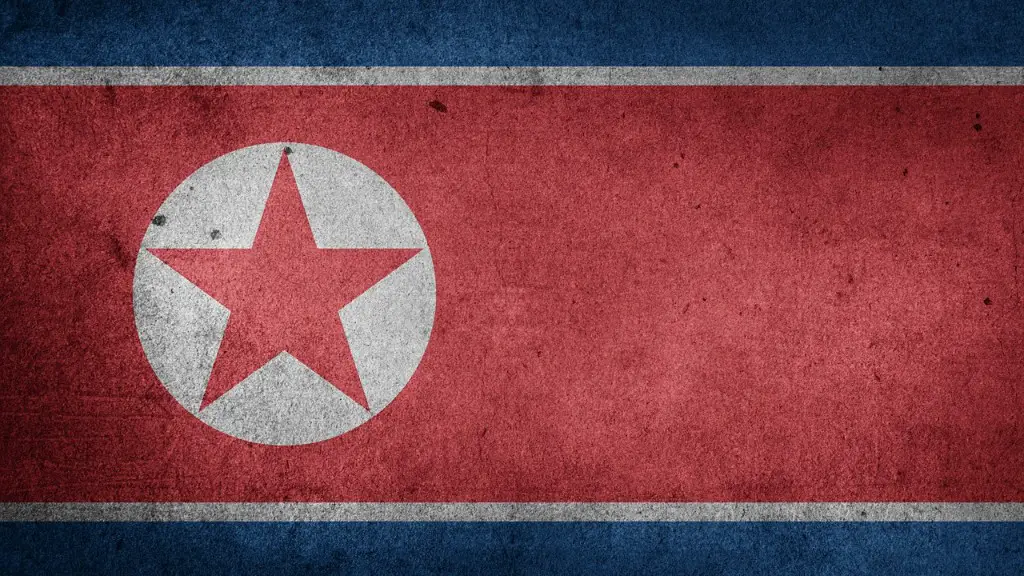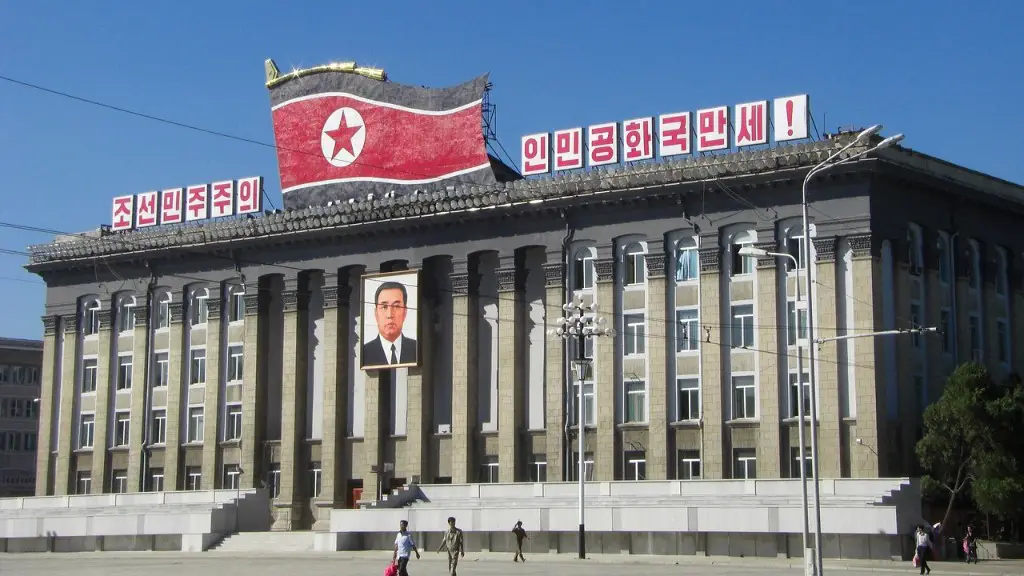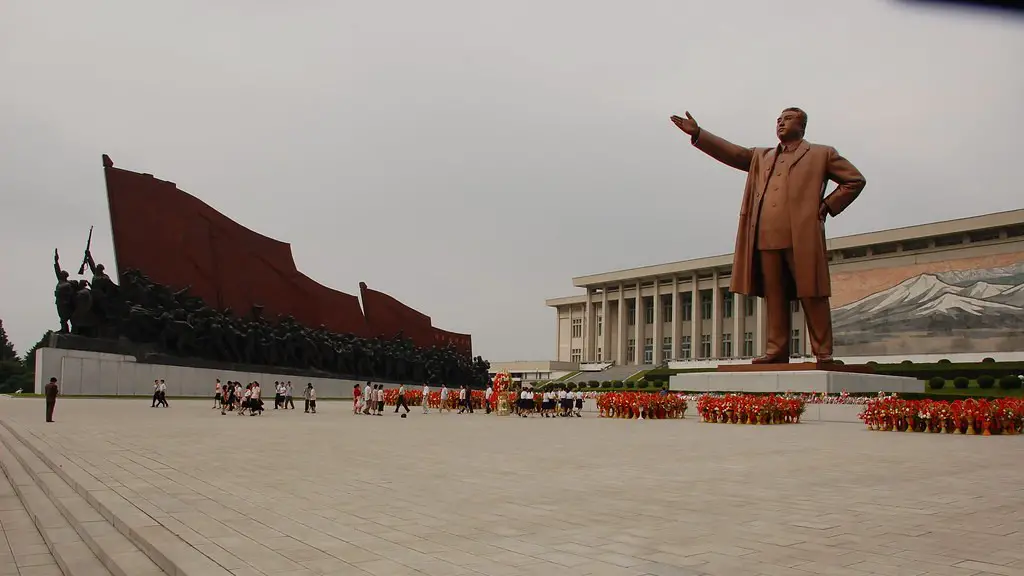Since the end of World War II, North Korea has relied heavily on its nuclear progams to protect itself against the West and its rivals. North Korea has been actively increasing its nuclear arsenal since 2006, with estimates suggesting that it now possesses between 20-60 nuclear warheads. The process of developing the highly destructive weapons does not appear to be slowing down and can be seen as a major security concern for the region, and for the world.
In response to North Korea’s nuclear ambitions, the United Nations Security Council (UNSC) has passed a series of resolutions calling for the country to choose a path of peace and non-proliferation. However, North Korea has consistently ignored these resolutions, instead continuing to develop and refine its nuclear weapons, with the current estimates suggesting that it now has an arsenal of somewhere between 20-60 nuclear warheads.
The United States and other western countries have been at odds with North Korea over its nuclear program for decades, with little to no significant progress being made. Despite this, North Korea is adamant that it has the right to arm itself with nuclear weapons, something that has been backed up by Russian President Vladimir Putin, who believes that North Korea should be allowed to build a nuclear deterrent for self-defense purposes.
This viewpoint has been shared by a number of other world leaders, who believe that North Korea should be allowed to pursue its nuclear ambitions, as long as it’s done responsibly and in line with international law. However, this view is not shared by all, with may world leaders arguing that North Korea is too unpredictable and dangerous to be allowed to possess such dangerous weapons.
Despite these differences in opinion over the nuclear program, it seems to be accepted at this point that North Korea does possess some form of nuclear arsenal, although the exact size and type of weapons remain a mystery. What we do know is that North Korea has already tested a number of different warheads and bombs, making detection and tracking of its nuclear activities incredibly difficult.
The North Korean government has also invested heavily in its missile program, with estimates suggesting that it has a large number of missiles capable of carrying nuclear warheads. This has caused further alarm amongst the international community, as it means that North Korea is able to potentially deliver nuclear weapons across large distances, potentially putting many countries at risk.
North Korean Policy of Nuclear Deterrence
North Korea’s policy of nuclear deterrence is based on the idea that if it maintains a strong arsenal of nuclear weapons, then other countries will be less likely to launch a surprise attack on them. This has been the thinking behind many countries nuclear policies and is also seen as an effective way to protect the sovereignty of the state.
In order to maintain its nuclear arsenal, North Korea has invested heavily in certain industries, such as its uranium enrichment program and its missile technology. These investments have allowed North Korea to build and test a number of different warheads and missiles, something which poses a serious security risk to nearby countries, particularly South Korea and Japan.
While the North Korean government claims that its nuclear arsenal is for self-defense purposes only, many world leaders and experts remain unconvinced, with some arguing that North Korea could potentially use its nuclear weapons to launch a surprise attack on its rivals. This fear has caused a great deal of tension in the region and beyond, with many countries worried about the implications of a nuclear-armed North Korea.
The United States has also taken a harder line against North Korea in recent years, in an attempt to push them to abandon their nuclear ambitions. However, despite increased economic sanctions and other attempts to pressure North Korea into giving up its nuclear weapons, there is still no sign of the country making any tangible progress towards disarmament.
Responses from Other Countries
In response to North Korea’s nuclear ambitions, China and Russia have taken steps to limit their support of the country, in an attempt to appease their western counterparts. China, in particular, has cut back its investment in North Korea and has made it clear that it does not support the country’s nuclear program.
Meanwhile, both Japan and South Korea, two of North Korea’s closest neighbors, have taken a hardline approach. Japan has been particularly outspoken against North Korea’s nuclear program, with the country’s Prime Minister, Shinzo Abe, having called for tougher sanctions against the country.
The United States, on the other hand, has attempted to broker a peace solution. The Trump administration has attempted to bring North Korea to the negotiating table, in the hopes of reaching a deal that would provide security guarantees to the United States and its allies.
However, the talks have been unsuccessful so far and it appears that North Korea is still determined to pursue its nuclear ambitions, despite the mounting pressure from the international community.
Risks of a Nuclear Armed North Korea
The most immediate risk associated with a nuclear-armed North Korea would be an accidental or intentional launch of an attack on South Korea or Japan. This could potentially lead to the loss of millions of lives and would likely result in a massive wave of destruction.
Given North Korea’s unpredictable nature, it is impossible to predict how it would respond in the event of a conflict. This has led to a great deal of apprehension amongst world leaders, with many believing that North Korea could potentially use its nuclear weapons to launch a surprise attack on its rivals.
Moreover, North Korea’s nuclear ambitions are a major source of tension in East Asia and beyond, as it has widely been seen as a security risk by many countries. These tensions could potentially trigger a chain reaction of events, leading to a full-scale conflict.
Furthermore, the proliferation of nuclear weapons could potentially lead to other countries to acquiring them, further destabilizing the region. This, in turn, could potentially lead to an all-out nuclear arms race, with catastrophic consequences.
International Efforts to Disarm North Korea
In an effort to curb North Korea’s nuclear ambitions, the international community has taken steps to try and get them to abandon their nuclear program. The United Nations Security Council (UNSC) has passed a series of resolutions calling for the country to choose a path of peace and non-proliferation.
Moreover, several countries, including the United States and China, have offered economic incentives and other forms of aid for North Korea if they are willing to forego their nuclear program. Additionally, an international coalition, known as the Six-Party Talks, has also been created in an effort to peacefully resolve the issue.
Unfortunately, North Korea has so far refused to give up its nuclear weapons, instead vowing to continue to increase its arsenal. In response, the UNSC has tightened economic sanctions against the country, although this has done little to deter the regime.
Ultimately, the situation remains highly complex and fluid, with no clear solution in sight. As such, it is difficult to predict what the future of North Korea’s nuclear program will be, as well as what other countries’ reactions will be.
International Reactions to Nuclear Ambitions
Given the high stakes environment, world leaders have had to carefully consider their response to the situation. The United States, for example, has imposed stringent economic sanctions against North Korea, only offering relief if the country dismantles its nuclear program.
Meanwhile, China and Russia, both of which are crucial allies of North Korea, have taken a diplomatic approach, attempting to broker a peace solution through various channels, such as the Six-Party Talks. However, this diplomatic effort has had little success so far.
Additionally, many countries have increased their defense budgets in order to better prepare themselves in case of a conflict with North Korea. Japan and South Korea, in particular, have both increased their defense spending in recent years in anticipation of a nuclear conflict.
Ultimately, it is clear that North Korea’s nuclear ambitions have put the world on edge. The international community is struggling to find a peaceful solution to the issue and the threat of a nuclear conflict still looms.
Risk Factors for Conflict
The risk of a conflict between North Korea and the United States or its allies remains a real possibility, given the unpredictability of the North Korean government. North Korea has repeatedly threatened to use its nuclear weapons in a conflict and has been accused of acting aggressively in its rhetoric.
Moreover, given the regime’s reluctance to comply with international law and norms, it is difficult to see a peaceful solution in the near future. The United States and its allies have been unwilling to compromise, leaving the situation in a precarious state.
Additionally, the United States and its allies have continued to build up their military presence in the region, in an effort to deter North Korea from acting on its threats. This has, however, only exacerbated tensions between the two sides, making it more likely that an accidental conflict could break out.
Finally, the lack of any direct communication lines between the US and North Korea makes it difficult to negotiate any kind of peace deal, with any potential talks likely to be conducted via third-party intermediaries. This further complicates the situation and has put additional pressure on all parties involved.
